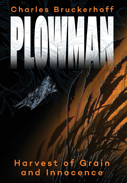
 |
Born on the same summer day, Hana and Stella’s destinies are intertwined in an unbreakable bond of friendship, punctuated by their discovery of war journals belonging to one Lieutenant George Washington Sanada, Hana’s great-grandfather, and Major Craig Bradley. Bruckerhoff’s own background as a Vietnam War veteran allows him to naturally ignite discourse and provide commentary on the idea of war and how, in mere moments, it can ravage all the good that societies have built up over time.
From the onset, the author supplies his audiences with a genealogy chart, almost a cheat sheet of sorts to track the various individuals that are pivotal in the narrative, especially in the growth arc of the two main characters, Hana and Stella. In turn, the duo set off on their own adventure of uncovering the mysteries and details behind the journals and turning the compilation into a full-fledged book.
The treasures of history, that of the world’s and of one’s own lineage, are displayed in all their grandeur in this work. The narrative switches between Hana and Stella’s school life at Stanton Academy of Humanity back centuries to 1567, where readers are acquainted with the way of the samurai warrior, Sanada Nobushige. As the novel forwards to 1934, readers are brought directly into Imperial Japan and the perpetual battle faced by families like the Sanadas to acquiesce to perennial serfdom or risk their lives to escape. Kenshin Sanada’s heroism continues the legacy of their lineage.
As a work of historical fiction, the narrative does an exemplary job of bringing to life pivotal moments of world history through the eyes of the characters. In particular, when Stella and her mom get the news that her father, Jedediah Young, has been killed in Afghanistan, it undoubtedly opens up raw emotions for those who have experienced loss through war. Through Stella’s deeper probing, scintillating questions that perhaps still have no definitive response create thought-provoking discourse. For instance, her questioning of why the Biden administration elected to pull out from Afghanistan, essentially leaving American citizens and Afghani supporters at the mercy of the Taliban, is meticulous and noteworthy. The degree of weaponry left behind for the Taliban to do with it what they may simply goes against humanity as it is “setting the stage for another wrong war somewhere in the world.”
Stella and Hana’s experiences prompt them to veer away from publishing the war journal and to instead chronicle the present moment of what America is, a mission they anoint as “Forward America.” Honoring her slain father among the countless war heroes who lost their lives unnecessarily, Stella calls for transparency in reporting on military and political affairs. At its core, Bruckerhoff’s work sheds light on how war can take away one’s innocence and kindle a fire within oneself to create change, as Stella and Hana have. Driven by the inquisitive nature of the central characters, the work renders itself easily relatable, one that directly cuts to the core of all families and unquestionably the families that have been direct victims of war. Ultimately, it is a saga of change, growth, and the desire to create a world one envisions, come what may.